Transistor preview: Supergiant's bold, futuristic follow-up to Bastion
The adventures of Red and the dead.
Supergiant's 2011 action-RPG Bastion made a lot of waves with its stunning art direction, procedural narration, and inventive approach to combat difficulty. It was clearly a game that wanted to rethink the isometric dungeon crawler rather than blindly follow in the footsteps of what came before. At a glance, its follow-up, Transistor, looks content to simply do Bastion again with its familiar isometric perspective, colourful world and the gritty vocal chords of rising voice-acting superstar Logan Cunningham dropping cryptic bits of narration over a mysterious plot that slowly comes into focus.
Dig deeper, however, and it's clear that Supergiant wants to do something different with Transistor, even if the surface details remain the same. This time out you play as a fiery-haired singer named Red who gets whisked away to a backwater alley of the neon, art nouveau metropolis she inhabits. Shivering in her fancy gold dress, Red is unable to speak when she happens upon a glowing blue sword lying next to her dead friend. I'm told this man is someone very close to her and he died saving her life before he was slain by this otherworldly weapon, the titular Transistor. Upon picking up the peculiar electric blade, it begins talking to her in the voice of her dead companion.
Relative to Bastion, the narrator's role feels different. He's not a wizened old stranger but a long-time friend. This disembodied voice shows a lot of compassion for Red, and it's clear that these two were very close prior to the incident that left one of them a talking sword and the other hunted by strange robots that are after said sword for reasons unknown.
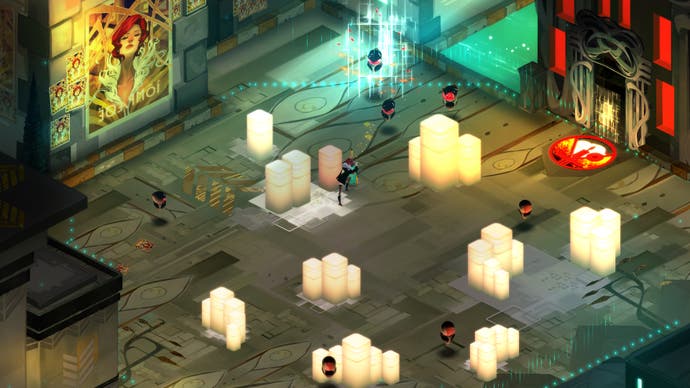
As Red and her incorporeal pal travel through this world they find dead people whose souls enter the Transistor and grant the player new powers. Were all these people killed by this weapon? What does it do? Where did all these robots come from and why do they want it so bad? And how come nobody's around? There's clearly something strange going on in the neighborhood but ghosts seem to be your friends here, so busting them doesn't seem like the thing to do.
Transistor's biggest departure from Supergiant's fan-favourite is an all-new combat system that seems downright brilliant. Its central mechanic is a strategy component called Turn, which operates like a mix between Fallout 3's VATS and Splinter Cell Conviction's "mark and execute" system. At any time you can call a Zack Morris-esque time out, then perform whatever actions you would like to do. Each action - be it walking, firing a laser, or swinging your sword - uses up part of an energy meter at the top of the screen. Once you've rehearsed your combat plan, select confirm and watch as Red performs it.
It's incredibly intuitive. The transition from real-time combat to this strategy mode is handled as smoothly and unobtrusively as switching to the celestial brush in Okami - right down to it being triggered by a shoulder button. There's no grid, and enemies don't fight back in a turn-based manner. You can even cancel moves if you're not satisfied with your combat plan. In short, it makes you feel badass.
The downside to this badassery is that when it's over you need to wait several seconds for your energy meter to replenish. Until then you won't be able to attack at all. Of course, you could always forgo this cooldown timer by sticking to real-time battles. Thus players are given a choice whether they want to engage in conventional direct combat or alternate between time-freezing strikes and retaliation.
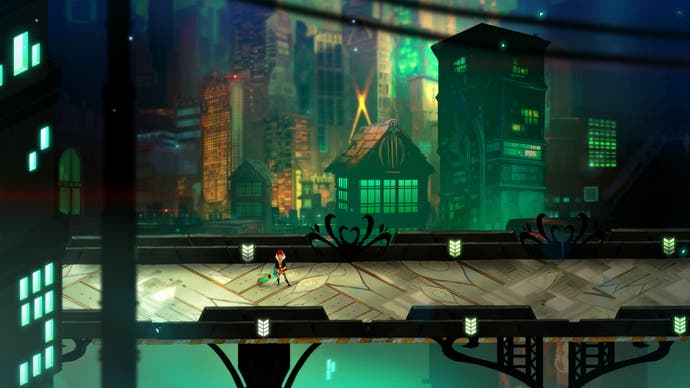
"We thought we were onto something with it when we found that there was a whole spectrum on the team," says creative director Greg Kasavin. "I really like the real-time play and I use it [Turn mode] as a 'get out of jail' card, whereas Gavin, one of our engineers, uses it all the time.
"We wanted to leave it up to the player how much they use that system. There's certain abilities that work just as well, if not better, in real-time," he adds. "We want you to want to use it, but we're not going to force you to use it constantly." Based on my experience it seemed a lot more balanced than Fallout 3, which, if approached as a shooter, kind of sucks. Transistor's real-time combat felt slower and more measured than Bastion's, but not necessarily worse. The environments feature destructible cover in the form of crystalline pillars, and with the game's emphasis on ranged combat, retreating behind them is important.
Another change to Transistor is the addition of 2D sections. So far these are limited to simple interactive cut-scenes where you just push forward as Red walks or rides her motorcycle through abstract environments as narration does the rest - in the vein of El Shaddai's early side-scrolling bits - but Kasavin told me the team was looking into various ways to make these 2D sections more interactive as the game progresses. "We want interactivity in everything, even when it is a more narrative moment," he states.
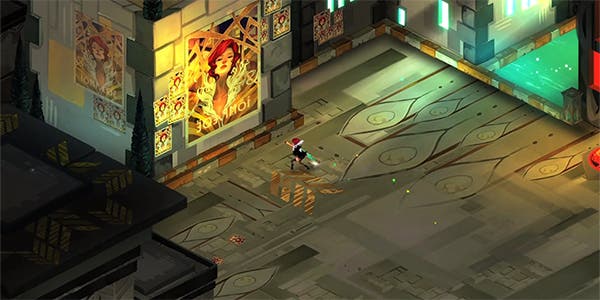
Perhaps Bastion's most clever trick was its customisable difficulty, which Supergiant would like to implement here as well, but it hasn't quite settled on how just yet as it doesn't want to simply retread old ground. "As a general idea, it's really important to us to couch game-like systems within the context of the world," explains Kasavin. "We never do something just because we've done it before. We always reconsider the decision and we try to do what's right for this game. So when it comes to difficulty, we wouldn't just do the shrine because the shrine was good in Bastion."
Transistor's flashy world, coupled with its haunting, melodic soundtrack, is so alluring that playing it fills one with a sense of overwhelming beauty usually reserved for Wes Bentley staring at plastic bags. Based on my 20 minutes with it, Transistor is fresher, livelier, and more imaginative than it has any right to be. Under the hood it's an action game with elements of strategy - two genres not known for their storytelling - but Supergiant has a knack for merging sharp narratives and old-school game mechanics in ways many have tried, yet few have succeeded at. Bastion was a surprise hit in the indie scene two years ago, and if my early look at Transistor is any indication, Supergiant is going to be far from a one-hit wonder.
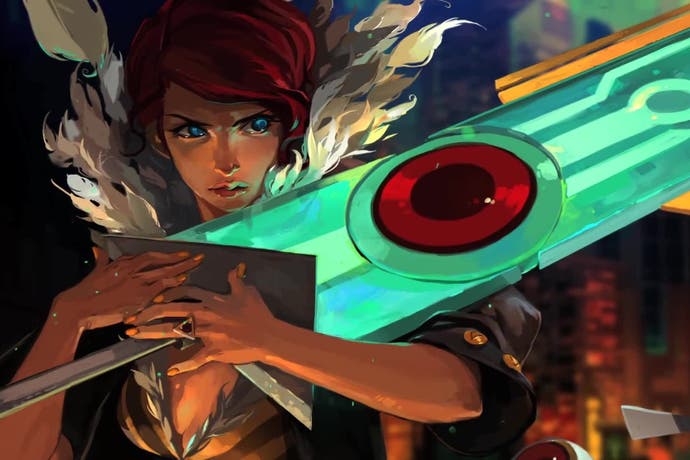

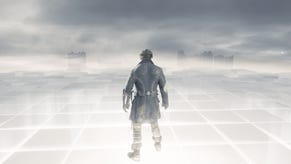
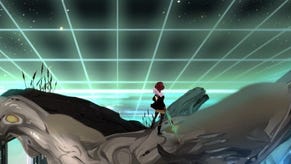

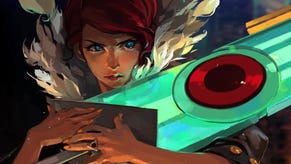
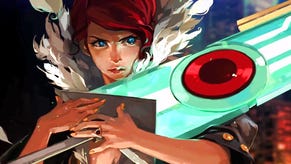



.png?width=291&height=164&fit=crop&quality=80&format=jpg&auto=webp)



